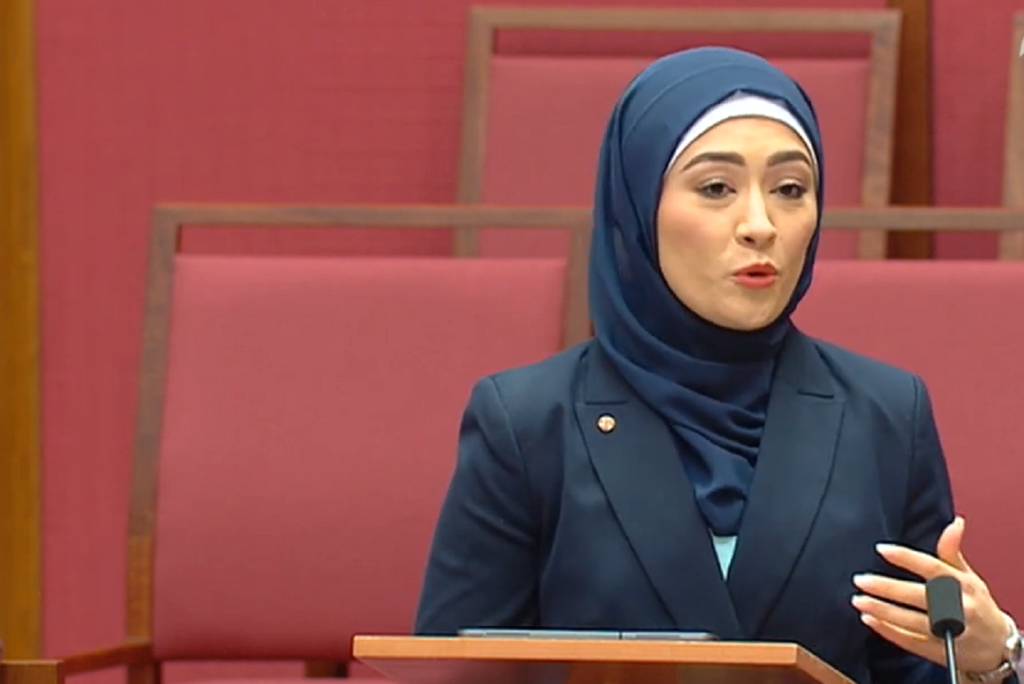The average Australian is a woman aged 30 to 39, with her male counterparts not too far behind, according to the 2021 Cenus. But you wouldn’t know that by looking at those sitting in the upper and lower houses of the Federal parliament.
Over there in legislation-making territory, Australian MPs in the 47th Parliament have an average age of 51, an improvement on recent years, much thanks to it officially becoming the most diverse in Australia’s history. Yet just a couple of the new senators elected last year are under the age of 40, while just seven or so of those newly elected to the lower house are under 40 at the time of publishing in 2023 – with men tending to dominate when it comes to younger politicians elected.
The ‘average’ Australian came to mind hearing from the likes of independent senator David Pocock (age 35), who is pushing a private members bill for a ‘duty of care’ to younger generations on climate change regarding fossil-fuel project approvals. Also, Max Chandler-Mather (aged 31) is a powerful voice for housing affordability as a spokesperson for the Greens, pushing for the Albanese Government to do more.
Do you need to be young to consider such things? Of course not. But it does seem to help, in terms of bringing in your immediate experiences (say around rent, cost of living, paid parental leave, university fees, contending with early childhood education fees etc) in to focus, and also sees such individuals identifying with how their generation will be further impacted by climate change, as well as the impact of climate change on their own children or any connection they have to the next generation.
In the United States, the age factor is even more extreme – where the average age is 62 in the Senate, and 57 in the House for the United States. Like Australia, the ‘average American’ is also a woman in her thirties. US President Joe Biden is 80 and could be pushing into his mid-eighties by the end of second term (if he wins). His potential, likely Republican rival – former president Donald Trump – would also be into his eighties during his second presidency, should he somehow manage to pull off another such presidential election victory.
Australia is also ahead of other countries in that the only age requirement is to be at least 18 years of age when running for office; in a third of countries such eligibility starts at 25. Internationally, just 1.65 per cent of parliamentarians are in their 20s, and just 11.87 per cent are in their 30s, according to figures from the United Nations. It’s little wonder then why global negotiations on climate change have been so slow and mostly fruitless in terms of the urgency and scale of emissions cuts needed.
Still, there are very few MPs and Senators in the Australian Parliament represented in their 30s, and only a tiny number in their twenties. Unfortunately, those in these age groups in major parties typically are not yet considered to have the ‘experience’ to be instrumental or leading across policy areas in their parties, although that may change in the future. Pocock, being an independent, has more scope to voice his push for reforms and get heard in the process. In Labor, Anika Wells is an exception to the 40 age barrier — aged 37, she is Minister for Aged Care and Minister for Sport, meaning she is the youngest person to sit in Albanese’s ministry (she is in the outer ministry). Most of Albanese’s ministers are in their fifties.
However, there are further exceptions outside of those with portfolio responsibilities, such as Senator Fatima Payman, aged 28, who represents more than just age diversity. She delivered a history-making first speech in September 2022, sharing the story of her family escaping the Taliban and leaving Afghanistan for a new home. Earlier this year, she notably called out members of the Opposition for walking out as she defended Labor’s proposal to tax superannuation balances over $3 million. Payman fought against the Opposition’s accusations of “rampant spending”, asking if addressing areas like the provision of cheaper medicine, of addressing accessible and affordable housing, and of paid parental leave, was “rampant spending”.
Having more youth represented in politics not only supports in raising issues that are particularly concerning for younger generations — and for future generations to come — it also could be hugely beneficial in getting a party elected in the first place. Indeed, Liberal MP Bridget Archer has previously called on her party to emphasise better policies that “go beyond the election cycle and consider future generations.” The Liberal party is even further behind their Labor counterparts on youth, just as it also is on women.


